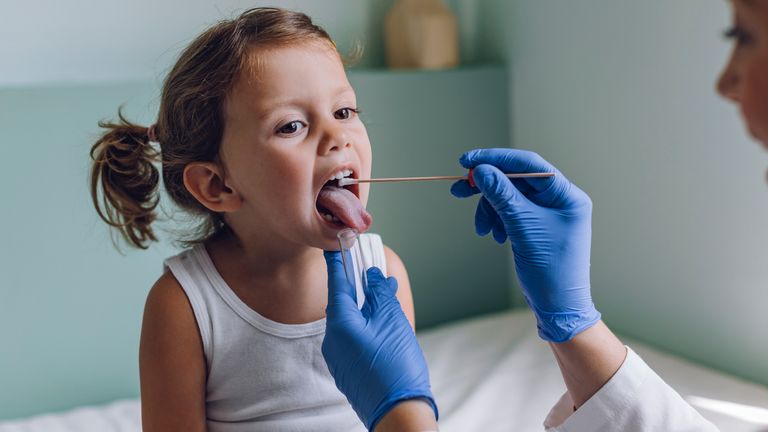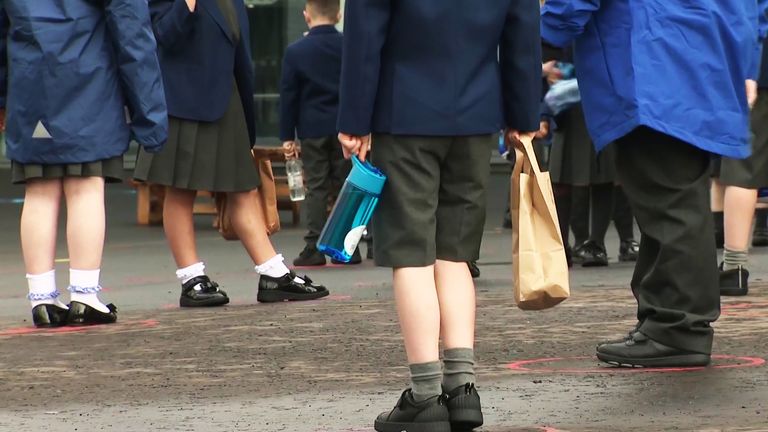Coronavirus: Should I get my child tested for COVID-19?
Schools are struggling to cope with a lack of COVID-19 tests – with new infections increasing since it became compulsory for pupils to return.
Most parents are being urged not to get their children tested for COVID-19, even if they are sent home from school.
Prime Minister Boris Johnson said groups of pupils should only be sent home if there has been a positive test, rather than someone just developing symptoms, as he defended the struggling testing system.
Here, we clarify the confusion regarding testing and school attendance.
When should I get my child tested?
Children can get coronavirus, but they appear to get it less often than adults and it is usually less serious.
If your child is showing the main symptoms of coronavirus, the NHS advises to get a test as soon as possible.
You should then self-isolate at home with your child and not have any visitors until you get the test result. Only leave your home to have a test.
Symptoms of coronavirus in children are:
- High temperature
- New, continuous cough
- Loss of change to sense of smell or taste
How do I tell the difference between COVID-19 and a cold?
Cold symptoms come on gradually and include symptoms such as a blocked or runny nose, a sore throat, headaches, coughs and sneezing.
The symptoms are the same in adults and children – and although they sometimes last longer in children, they can be treated without seeing a GP.
If your child has a very high temperature, a new, continuous cough or a loss or change to their sense of smell or taste, get them tested for coronavirus.
When should I send my child back to school?
If your child tests negative for coronavirus and they feel well, then they can stop self-isolating and return to school. Other members of their household can also stop self-isolating.
Children who test positive for COVID-19 must continue to self-isolate for at least 10 days from the onset of their symptoms and only return to school if they do not have symptoms other than a cough or loss of sense of smell/taste.
This is because a cough or anosmia can last several weeks once the infection has gone.
The 10-day period starts from the day when they first became ill.
If you child still has a high temperature, they should keep self-isolating until their temperature returns to normal. Other members of their household should continue self-isolating for the full 14 days.
How can I keep my family safe if my child has COVID-19?
If your child is showing symptoms of coronavirus, everyone in the family home should self-isolate until testing is done or symptoms are gone.
Try to have just one person caring for the sick child so others are not exposed, and keep other people and pets away from them as much as possible.
:: Subscribe to the Daily podcast on Apple Podcasts, Google Podcasts, Spotify, Spreaker
If your child is over three years old and can wear a face mask or covering without difficulty breathing, have them wear one when the caregiver is in the room.
Everyone in the household should wash their hands well and often for at least 20 seconds every time, or use alcohol-based sanitiser.
Keep things that get touched a lot clean with household cleaners or wipes, such as doorknobs, light switches, remote controls and toys.
Source: Read Full Article




